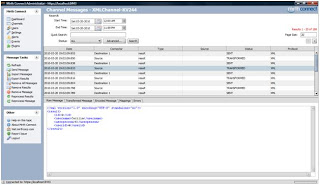I'm really curious what effect will this have on databases. In theory, with the right authentication in place, everything could be exposed online and EDI would be vastly simplified, from sneakernet to HL7, everything would be replaced by REST calls.
At any rate, Freebase's attempt to organize everything is ambitious/stunning.
Wikipedia's own API, here.
Related: Talis.


